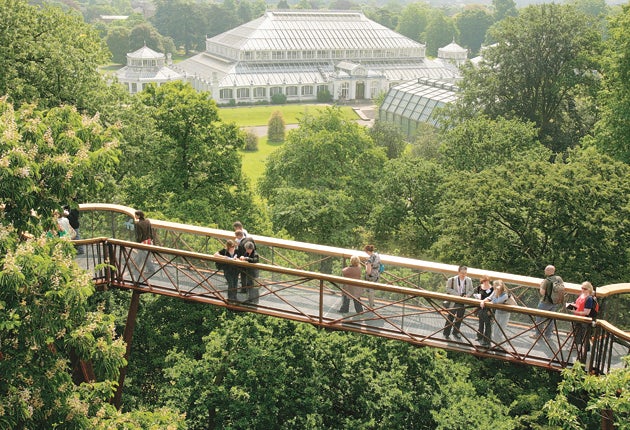Defra: Nature reserves set to go private and Kew suffers

Your support helps us to tell the story
From reproductive rights to climate change to Big Tech, The Independent is on the ground when the story is developing. Whether it's investigating the financials of Elon Musk's pro-Trump PAC or producing our latest documentary, 'The A Word', which shines a light on the American women fighting for reproductive rights, we know how important it is to parse out the facts from the messaging.
At such a critical moment in US history, we need reporters on the ground. Your donation allows us to keep sending journalists to speak to both sides of the story.
The Independent is trusted by Americans across the entire political spectrum. And unlike many other quality news outlets, we choose not to lock Americans out of our reporting and analysis with paywalls. We believe quality journalism should be available to everyone, paid for by those who can afford it.
Your support makes all the difference.The privatisation of England's 224 National Nature Reserves is a likely outcome of the 30 per cent cut in the budget of the Department for Environment, Food and Rural Affairs (Defra). The Royal Botanic Gardens at Kew budget will also be cut.
The network of reserves, which shelter some of Britain's most precious species and habitats, is mostly maintained by Natural England, the Government's wildlife agency, which is a Defra-funded arms-length body likely to have its own budget cut by up to a third. But as a major money-saving exercise, it seems certain to be handed over in whole or in part to wildlife conservation charities including the National Trust, the Wildlife Trusts and the Royal Society for the Protection of Birds.
Defra has been in discussions with these bodies for weeks about making the reserves over to them, but a sticking point has been that the charities would be expected to maintain the reserves at their own expense. Asked about it yesterday, Defra minister Lord Henley was not prepared to comment. But a senior source said: "The talks are still going on but the decision has not yet been taken."
Defra must knock £700m off its budget, reducing it from £2.9bn to £2.2bn by 2014-15. One notable item which has survived is the funding for wildlife-friendly farming, which pays farmers to make provision for species from skylarks to bumblebees. At one point it seemed a major cuts target.
Kew's Millennium Seed Bank, at Wakehurst Place in Sussex, has been awarded new funding of £3m per year, but the budget of Kew itself, where the costs of £50m per year are partly met by Defra grant-in-aid of about £27m, will be cut. Staff at the Royal Botanic Gardens were unable to comment.
Join our commenting forum
Join thought-provoking conversations, follow other Independent readers and see their replies
Comments